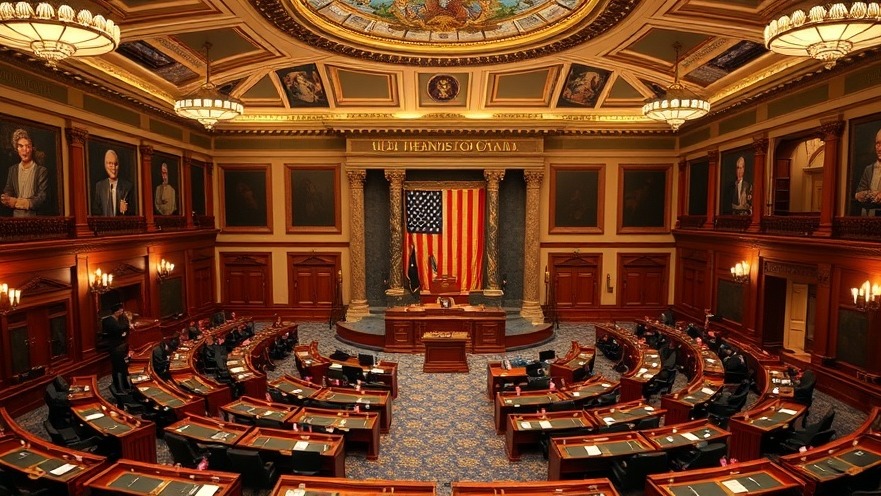
Senate Marks a Turning Point with GOP's Tax and Spending Bill
The recent passage of the U.S. Senate's tax and spending bill represents a significant shift in legislative priorities, especially for Texas lawmakers. Over a marathon voting session extending 26 hours, senators John Cornyn and Ted Cruz championed provisions benefiting their state, with Cornyn successfully securing $13.5 billion for Texas border security expenses — a notable increase from the House’s version. This funding package, light on bipartisan support, faces potential resistance as it returns to the House where some GOP members maintain differing fiscal views.
Understanding the Backlash and Internal Conflicts
Despite the enthusiastic backing from Cornyn and Cruz, the bill encounters skepticism, particularly from certain Texas Republicans who previously emphasized larger budget reductions. The legislative terrain remains tumultuous, highlighting a divide between the Senate and House GOP regarding federal spending. This discord underlines a complex landscape in Texas politics, where state spending priorities clash with broader national fiscal responsibilities.
Key Features of the GOP’s Legislative Push
Dubbed the “One Big Beautiful Bill,” this legislation features a range of initiatives reflective of Trump-era priorities. Among them are major changes to Medicaid and the Supplemental Nutrition Assistance Program, both of which signal a more substantial financial burden could shift toward states. Supporters argue these alterations align with efforts to reduce federal spending and redirect resources efficiently, while opponents fear the erosion of vital support structures for economically vulnerable populations.
Cruz’s Vision for Texas: Child Investment Accounts and School Choice
A standout component of Ted Cruz's contributions is the introduction of government-seeded investment accounts for children, which could greatly influence Texas education funding in the long run. Dubbed “Trump accounts,” these provisions aim to empower families financially, promoting long-term investment in children’s futures. Moreover, the associated tax credit for donations to nonprofit scholarships symbolizes a contentious 'school choice' framework that parallels the recent voucher program pushed by Texas Governor Greg Abbott.
The Future of Regulatory Frameworks and AI Technology
As the country grapples with rapid technological advancement, Cruz's provision requiring a decade-long freeze on state regulations regarding artificial intelligence development has stirred considerable debate. This proposal, initially intended to streamline federal funding for AI infrastructure, signifies a pivotal moment in the efforts to balance innovation with ensuring proper safeguards. The shortened five-year moratorium, resulting from negotiations with Senator Marsha Blackburn, reflects ongoing tensions within the GOP concerning technology sector regulations.
Potential Implications for the Broader Texas Community
The ramifications of this bill extend far beyond Washington, resonating deeply in the Texas community. Citizens can anticipate changes in Medicaid availability, school funding structures, and border security strategy which will directly affect their daily lives. With $500 million earmarked for AI infrastructure, Texas might also explore new technological avenues, potentially reshaping job markets and promoting economic growth.
Actionable Insights for Texans
To navigate the evolving political landscape, Texans should remain informed about the implications of the new tax and spending bill. Understanding how these legislative changes may affect local schools, healthcare systems, and security funding will be essential for engaging in community dialogues and advocating effectively for individual and collective needs.
As Texas prepares for the 2025 elections, constituents should communicate their views on this bill with their representatives, highlighting their priorities. Participating in local forums, town halls, or engaging in community organizations can help ensure that the voices of Texans are heard amid national debates over fiscal policy.
 Add Element
Add Element  Add Row
Add Row 



Write A Comment